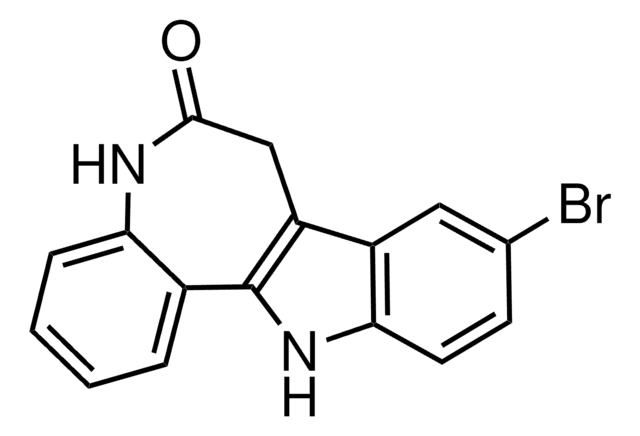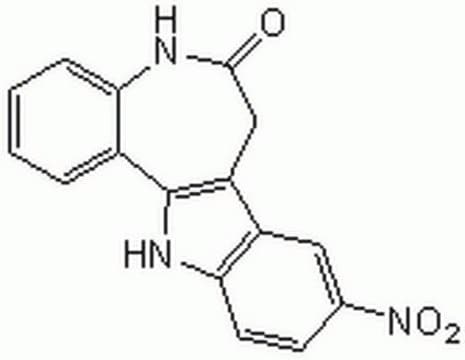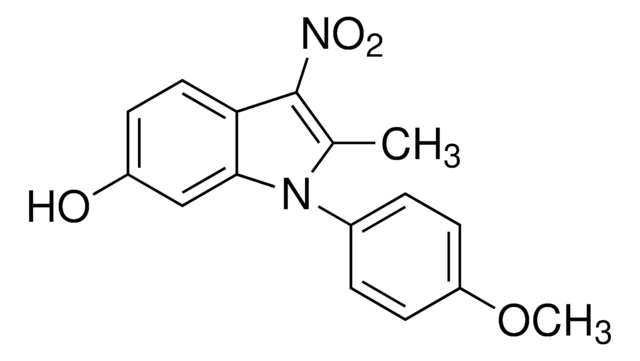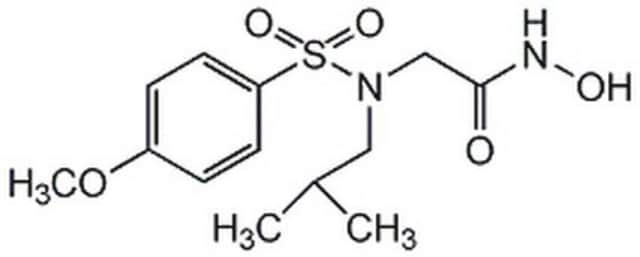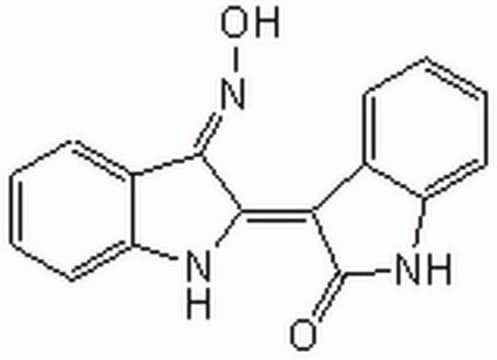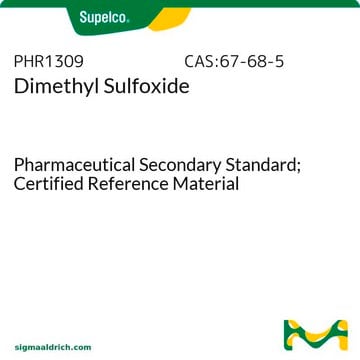A3734
1-Azakenpaullone
≥97% (HPLC)
Synonym(s):
9-Bromo-7,12-dihydro-pyrido[3′,2′:2,3]azepino[4,5-b]indol-6(5H)-one
About This Item
Recommended Products
Quality Level
Assay
≥97% (HPLC)
form
powder
storage condition
protect from light
color
gray-brown
solubility
DMSO: >10 mg/mL
storage temp.
2-8°C
SMILES string
O=C1CC2=C(NC3=C2C=C(Br)C=C3)C4=C(C=CC=N4)N1
InChI
1S/C15H10BrN3O/c16-8-3-4-11-9(6-8)10-7-13(20)18-12-2-1-5-17-15(12)14(10)19-11/h1-6,19H,7H2,(H,18,20)
InChI key
NTSBZVCEIVPKBJ-UHFFFAOYSA-N
Biochem/physiol Actions
Caution
Storage Class Code
11 - Combustible Solids
WGK
WGK 2
Flash Point(F)
Not applicable
Flash Point(C)
Not applicable
Certificates of Analysis (COA)
Search for Certificates of Analysis (COA) by entering the products Lot/Batch Number. Lot and Batch Numbers can be found on a product’s label following the words ‘Lot’ or ‘Batch’.
Already Own This Product?
Find documentation for the products that you have recently purchased in the Document Library.
Customers Also Viewed
Articles
Glycogen synthase kinase 3 (GSK-3) is a highly conserved family of serine/threonine kinases for over 100 proteins in many pathways. See a list of accepted GSK-3 modulators and related products.
Glycogen synthase kinase 3 (GSK-3) is a highly conserved family of serine/threonine kinases for over 100 proteins in many pathways. See a list of accepted GSK-3 modulators and related products.
Glycogen synthase kinase 3 (GSK-3) is a highly conserved family of serine/threonine kinases for over 100 proteins in many pathways. See a list of accepted GSK-3 modulators and related products.
Glycogen synthase kinase 3 (GSK-3) is a highly conserved family of serine/threonine kinases for over 100 proteins in many pathways. See a list of accepted GSK-3 modulators and related products.
Our team of scientists has experience in all areas of research including Life Science, Material Science, Chemical Synthesis, Chromatography, Analytical and many others.
Contact Technical Service